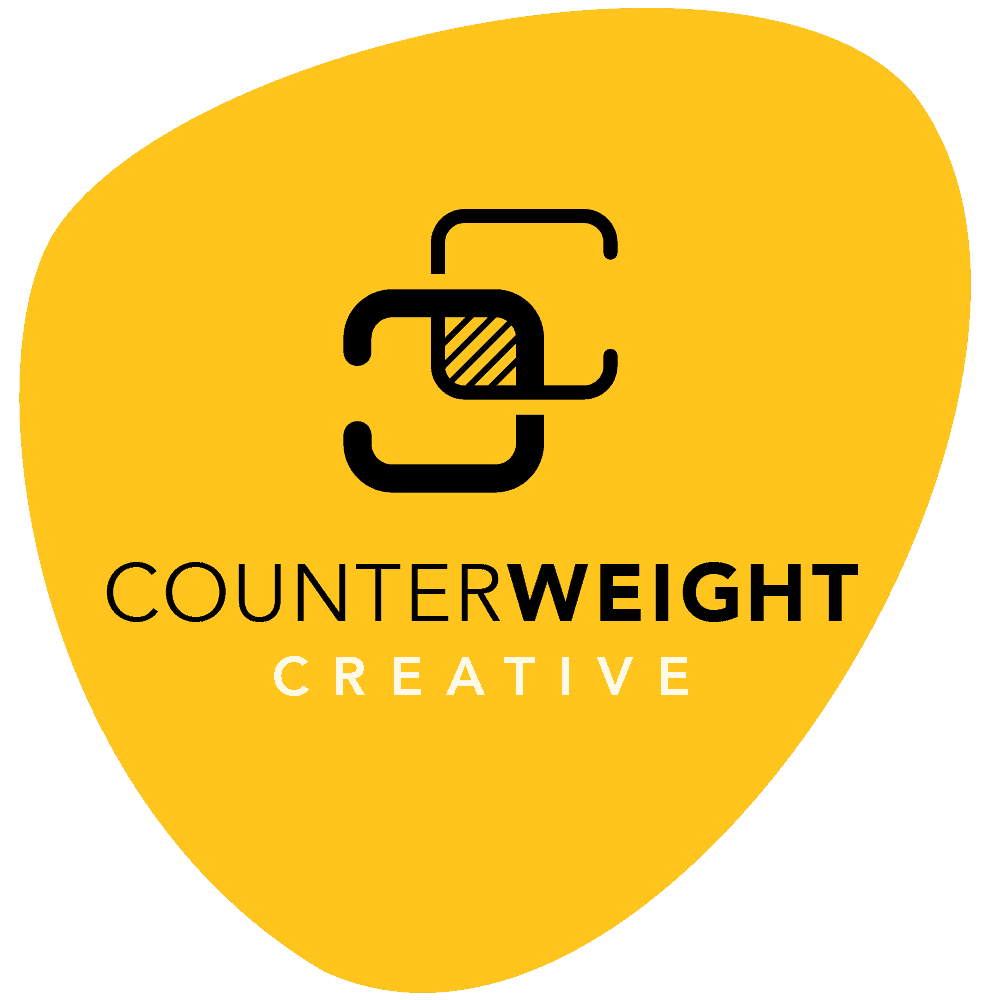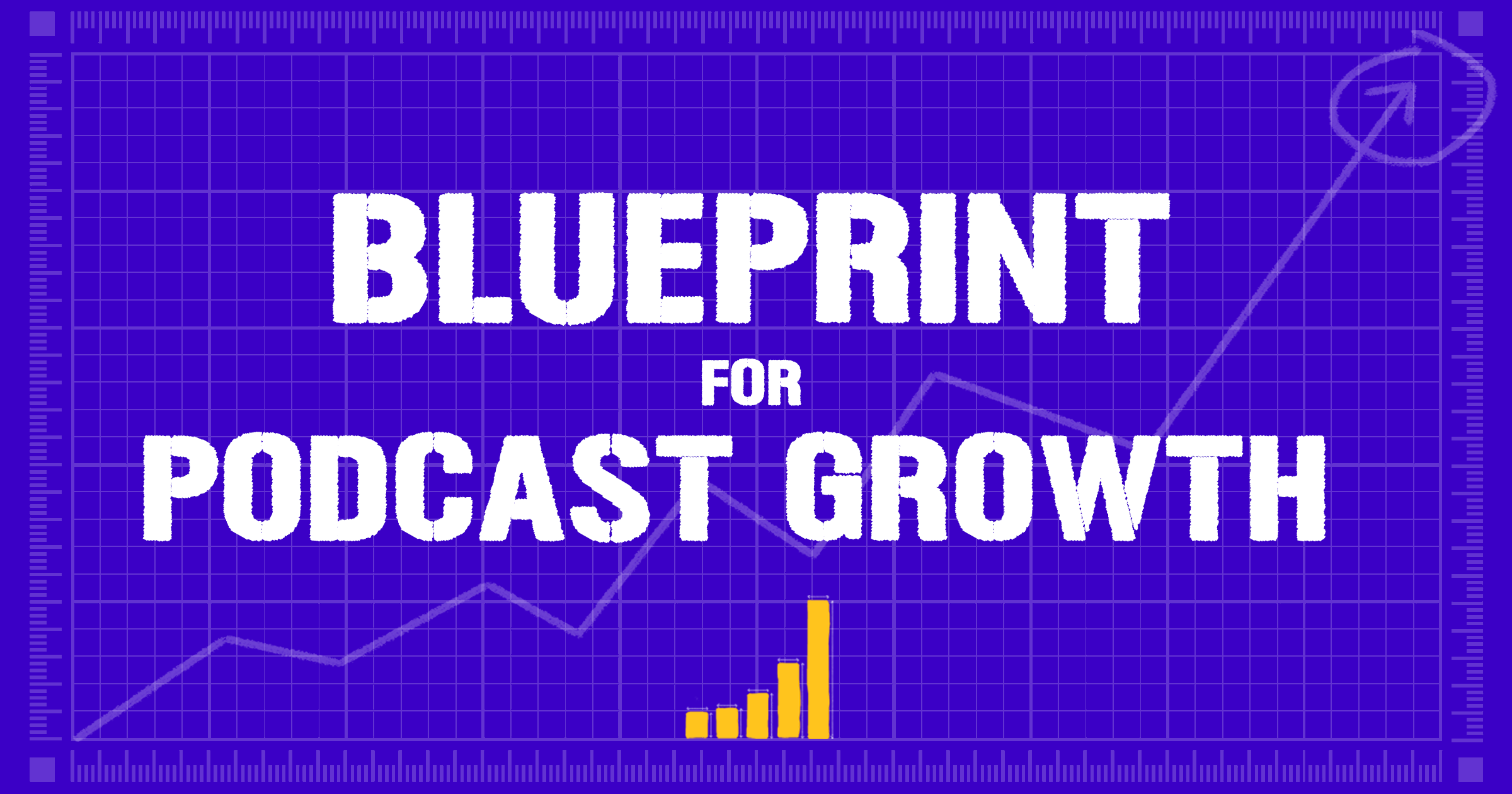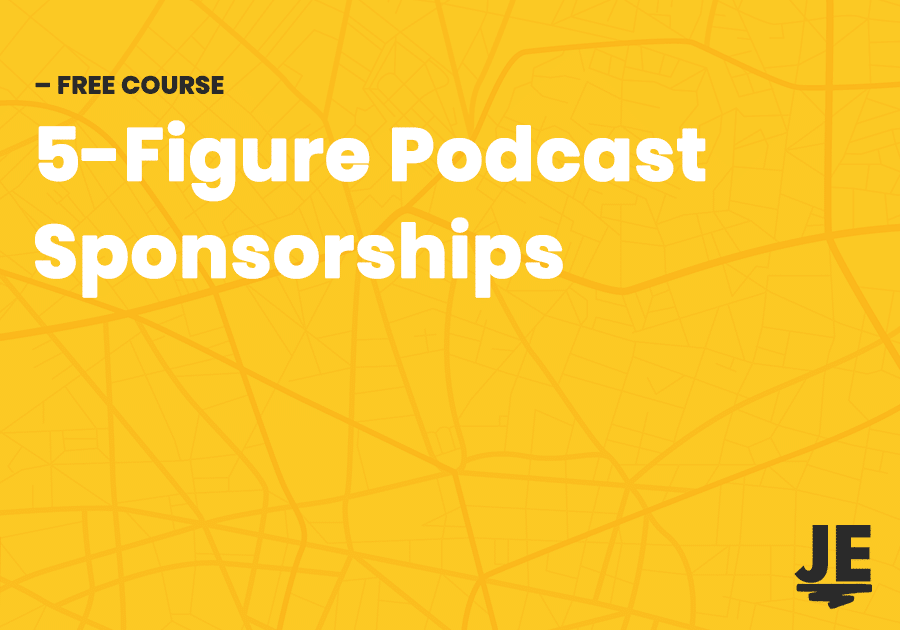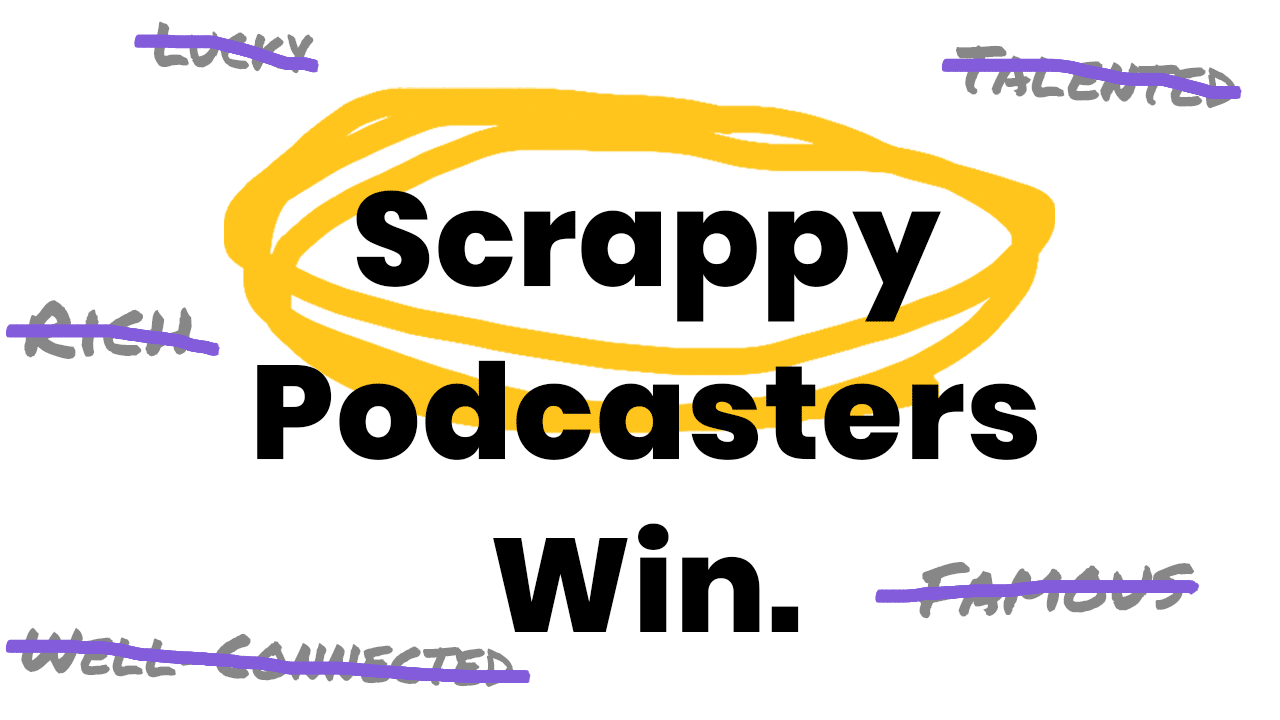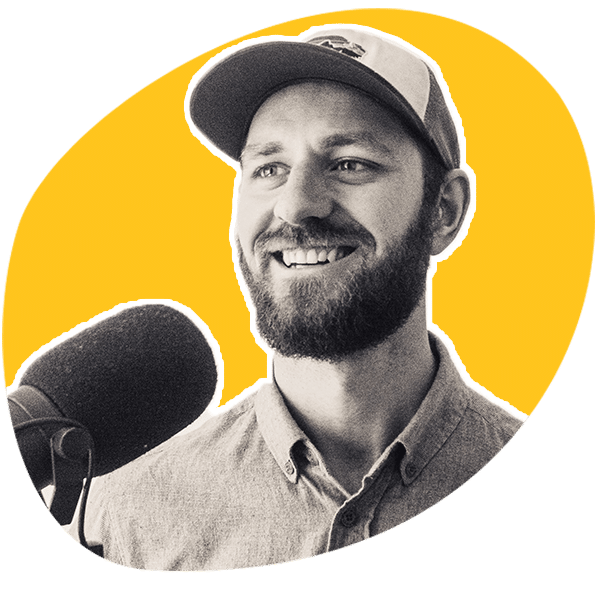A month or two ago on their podcast, the massively popular (in investing circles at least) The Investor’s Podcast, the host’s (also friends and clients of mine) Preston and Stig got into a discussion about what the best strategy for investing might be at this moment in time.
A simplified bit of context for everyone who doesn’t follow the market regularly: The stock market is widely considered to be fairly highly overvalued as of this writing, meaning that there is a lot of risk to investing with relatively low returns to be gained.
Preston brought up the point that especially under conditions such as this, he was of the opinion that the best choice an average person could make with their money would be to invest operationally.
He went on to explain this as meaning to invest in yourself, your craft, or your business by purchasing new equipment, tools, education, resources, etc that should pay large dividends down the road. This could be achieved by leveling yourself up skill and knowledge-wise, or by making your business and/or life run more smoothly.
This statement really hit home for me at the time I heard it, and I’ve been thinking about it a lot more since, and applying it to how I spend my money, both on my business and myself.
I mean, think about the potential investment of a book. My life is changed routinely by fantastic books, usually consumed through an Audible membership I pay monthly for. It’s hard to think of another $15 investment that could return the same value*.
*For example, I can assuredly say I wouldn’t have a business of my own in the first place without many of the books I’ve read.
In another example, after years of hacking together free or cheap workarounds, in the past year I’ve started to open up my spending on business tools (although still entirely within reason), and have often seen results immediately thereafter. These might be in the form of an easier workflow, less frustration, and more time to focus on the areas of my business that matter more to me.
So, Uhh What Does This Have To Do With Podcasting
I bring this up, because it seems to be a daily occurrence where I’ll be cruising podcast forums and groups and come across questions like “Does anyone have advice on a good podcasting mic under $30?” or maybe “I’m looking for a free [insert pretty much anything here*] that can get me [insert fantastical result here]”
*Except a pet baby elephant. Everyone knows you can’t get those for free…
First off, and in the spirit of the season (it’s Thanksgiving week as I’m writing this), we already have a ton to be thankful for in terms of affordable resources as podcasters.
We all have access to a perfectly capable, well-featured DAW, Audacity, that thousands upon thousands of podcasters use to produce their shows on a weekly basis. What’s more, many of us have access to another free DAW in Garageband!
One of the most popular podcasting mics of all time, the Audio Technica ATR2100 sells for about $60 and has taken countless podcasters from listener bases consisting entirely of their mom, to their mom plus tens of thousands of other regular listeners.
We have it seriously good.
If you want to know more about super affordable gear to get you started, be sure to download a free copy of The Absolute Beginner’s Podcast Gear Guide.
The Limits Of Frugality
Ok, so I’m going to be honest, I’m a recovering frugaholic (it’s a word, look it up*). As I alluded to at the start of this article, I have a long history of hacking together workarounds in order to save money, often very successfully(ish)! A few of problems consistently arose from that approach however.
* Don’t actually look it up…
- I spent a lot of time researching how to actually hack disparate free tools together to come up with something that did (mostly) what I wanted it to. When I say a lot of time, I mean a lot of time.
- My workarounds never functioned quite like I wanted, costing me more time in the actual implementation of the task, and introducing a ton of frustration.
- After a few days, weeks, or months of dealing with my workaround system, probably having spent a little bit of money and a ton of time on it, I would end up just buying the paid tool that I was trying to avoid buying in the first place, thus ultimately costing me more money than if I had just bought it in the first place.
In the end not, only was I wasting time and spending more money with my efforts to extract as much utility as possible out of the free or cheap tools available to me, but the process I was trying to achieve in the first place became decidedly less fun. I’ve had this happen with podcasting*, music writing and recording, website building, email list growth, and many more. The process always seems to play out the same way.
* I even built my own microphones once, not that that was ENTIRELY a cost-saving endeavour though…
Now, I know that while we are blessed with some incredibly affordable options to get started in the world of podcasting, there are also seemingly limitless paid (and often very pricey) tools all vying for our limited budgets, but the answer is not to resist them all and spend no money on our podcasts whatsoever.
We’ll get to where I suggest you focus on spending your money in a minute, but first I want to talk about why you should be open, and in fact excited to put some money into your podcast in the first place.
Why Your Podcast Is One Of The Best Places You Can Spend Your Money
Let’s face it, at the best of times, podcasting can be a technically challenging, time and energy intensive endeavour. One that most of us balance with other obligations such as families, friends and day jobs.
Those challenges alone are enough to turn a good number of aspiring podcasters into former podcasters in very short order. Ask any established podcaster who seems to have their s*** (<— “show” obviously…) together and they’ll tell you that organized, efficient systems are what that hold the house of cards together and allow them to produce their show amidst the dozens of other commitments and distractions in their daily lives.
Maybe even more important than the systems however is maintaining the excitement to keep working at your podcast day in, day out.
I don’t know about you, but in my experience, working with passable, but non-streamlined tools seems to have a way of derailing both of those objectives. Even if I’m able to come up with systems incorporating my free tools, they’re often not nearly as efficient as they could be by paying for better tools.
Even more importantly, constantly researching workarounds, integrations, and fixes for various free resources often leaves me drained of all desire to actually work towards the goal these tools are supposed to be helping me achieve in the first place, like putting out a kick-ass podcast for example.
These reasons alone are enough in my mind to justify establishing a consistent monthly or yearly budget to put towards making your podcast process easier and more enjoyable. But there’s one more reason that for me takes the cake, and it goes back to the concept of investing operationally that we discussed at the start of this article.
Dealing With Competing Mentalities
Now I don’t want to assume anything about you and your show, but if you’re like the majority of podcasters I talk with, at some point you would love to monetize your podcast in some way.
Hooray! That’s a great goal to have and is totally achievable! But to get there, you’re probably going to need to make a few changes to the way you approach the creation of your show, and your willingness to put some money into it is one of those.
Keep in mind that when I say “put some money into it” I’m not saying refinance your house or come up with an extra $1000/month. No, I’m saying you should do an analysis of where you think your money would get you the greatest returns on your podcast, and spend it there.
One of the members in The Cut The Bullshit Podcast Community recently started a thread asking what people’s monthly cost breakdowns look like. A bunch of podcasters jumped in and shared where they were spending and how much, and of those that answered, most seemed to be spending somewhere in the range of $100 – $300 per month to produce, organize, and promote their shows.
Now, I’m guessing that for a lot of you, $100 – $300 a month sounds like a lot of money that you don’t have to put towards your podcast. However, I’m also guessing that that’s entirely because you’ve unconsciously chosen to prioritize putting your available budget towards other aspects of your life. Netflix account? Eating out? Going to the bar? Gym membership? Driving more than walking, biking or public transit?
I’m not saying any of the above usages of your budget are bad or wrong, I’m just saying if you consistently put money towards those, but then say you don’t have an available money to put towards your podcast, it’s an issue of priorities, not lack.
Like I’ve said, I’m someone who has (and continues to in some cases) attempted to extract every last ounce of utility out of every dollar I put towards my business pursuits. I’ve come to realize however, not only the downright ignorance, but futility of this mindset when it comes to building something awesome that you fully plan to return a profit to you at some point.
Think about it, is it really fair to expect something that you have tried at every turn to put the bare minimum investment into, to provide you any meaningful return at any point? While possible, I’d say you’re only stacking the odds against yourself and making it harder for that situation to ever come about.
To me, the unwillingness to invest meaningfully in our podcasts suggests a conflicted belief about the potential of our shows.
On the one hand, we’re growing our shows with the goal of making at least some income off of them at some point. Yet at the same time, we’re often unwilling to put money into them because it feels like we’re “throwing it away” on something that might not provide us with anything to show for it.
Sounds like two competing mindsets to me, and I can all but guarantee that the losing mindset is the one that will win out eventually.
When we talk about investing operationally in our podcasts or businesses (in this case, one and the same), we’re talking about spending money now, to make more money in the future.
While the monetary results might not be immediate, in my experience, there will be some other very real results which reveal themselves almost immediately. These might include saving you time, streamlining your workflow, improving the quality of your show, allowing you easier or more interaction with your listeners, and regardless of other benefits, hopefully making your production process more enjoyable, and inspire you to work harder and more creatively at it.
In the end, these are the things that are going to allow you to continue working at and growing your show, hopefully to the point where you do end up getting a monetary return on your initial investment.
How To Decide Where To Spend Your Money
I like to evaluate where my money might do the most good for me by a few different categories according to the objective they achieve. Your most pressing objective will no doubt change as your podcast grows, and with that, the areas in which it makes sense for you to invest will shift as well.
Audio Quality & Initial Gear
Alright, so this is the first investment hurdle that needs to be addressed. This could mean microphone(s), mixers, portable recorders or any other type of physical gear. Software for recording your conversations like eCamm Call recorder, Zencastr, Ringr, or Cast could also fall in this category.
Again, if you want some more insight into some of the gear I recommend for those just starting out, download The Absolute Beginner’s Podcast Gear Guide.
Production Workflow
This could mean upgrading your DAW from a free option such as Audacity or Garageband to one of the many other options. Personally, I shudder at the thought of editing, mixing or doing 200-track sound design projects in anything other than Pro Tools (not that that’s the best option for you). In fact, I recently spent $600 upgrading my plugins and Pro Tools to new versions, and one week in I can say my post-production process is a whole lot easier.
Other options might be software tools like Calendly, Google Apps for Business, or any other scheduling and collaboration tools that could improve your podcast workflow.
As you grow your podcast, this could also mean investing in outsourcing some elements of your podcast production, or hiring a general VA (virtual assistant) to make your creation process smoother and take some of the work off of your plate.
Promotion
Your first thought when it comes to promotion might be running paid ads on Facebook, Instagram, Youtube, etc, this is definitely one option, but if you don’t know what you’re doing when it comes to running ads, it can be a waste.
Other options might be software for scheduling your social media posts like Hootsuite or Buffer, design software to help you more easily create great looking promo material, or hiring a social media consultant to help you draft a plan for how to effectively promote your show on a week to week basis
Online Business Tools
As your ambitions grow beyond simply putting out good quality recordings, a whole wide world of tools on which to spend your podcasting budget opens up.
I would suggest that one of the first areas in which to focus might be making sure your website is easy to use and looks appealing (I love the Divi theme from Elegant Themes for my WordPress site).
Following that, I would prioritize anything that will help you grow an email list, whether that’s email marketing software like MailChimp, Drip, or ConvertKit, (I’m a big fan of MailerLite when starting out!), or something like LeadPages or ClickFunnels to help you take your email marketing and sales efforts to the next level.
Education
No matter where you’re at in your journey, I’m a believer that spending money on education is never wasted, and can pay off BIG TIME, often in very short order. Over the past few years I’ve put probably a few thousand dollars into educational products, including online courses, in-person workshops, books, and more.
Not once have I regretted the decision to purchase any of those products, and I wouldn’t be here without them.
Community
The final category is one that I’ve come to appreciate more and more the more I’m exposed to it.
Community.
Being around other people who are striving to achieve the same goals as I am. Not in a competitive way, but a supportive and inspiring one.
Now there are a lot of ways to grow your community, and not all of them require money, but in my experience, many of my closest connections (which have led to some big wins) came from shelling out some dough in the first place.
This has taken the form of conferences, paid online communities, mastermind groups, and local in person events.
I believe SO strongly that a supportive, inspirational, and motivational community is entirely essential to achieving success in any arena, podcasting being no exception.
Community events often incorporate a strong educational element, so in a way by investing in growing your community, you’re killing two birds with one stone. This is an area I’ve always know was important, but skimped heavily on when my budget was tighter than it is now.
The thing is, now that I’ve seen the effects that a strong and inspiring community has had on my life, business, blog, and podcast, I wish I had invested in growing it sooner. I know I could have shaved a year, or two, or five off of getting to where I am now if I had the people who are in my life now there from the start.
Where To Start?
I know. This was yet another long article with a ton of information, maybe a bit of ranting, and a couple of made up words.
Lucky for you I’ve created a flowchart that breaks down how I recommend you might split up your podcasting budget at each stage of your podcasting journey, Starting Out, Growth & Improvement, and Monetization & Beyond.
It’s got boxes and colours and links to recommendations and all kinds of good stuff that you probably just can’t wait to get your hands on. So what are you still listening to me for?? Go get it!
And while you do that, I’ma go get myself some ice cream…
I’d love to hear what your monthly or yearly budget is for your podcast and how you split that up! Lemme know how it all goes down in the comments section yo!
Just a heads up, some of the links I mention in this article are affiliate links. These are all products that I’ve used myself and that have seriously helped simplify my process. I wouldn’t recommend them otherwise. For more on my favourite gear and tools, check out the podcasting resources page.
- Why Wouldn’t They Just Google It? - March 14, 2021
- Before You Can Market Your Podcast, You Need To Create A Marketable Podcast - March 11, 2021
- Podcast Promotion & Marketing Are Different (Here’s How to Use Each Effectively) - March 10, 2021
